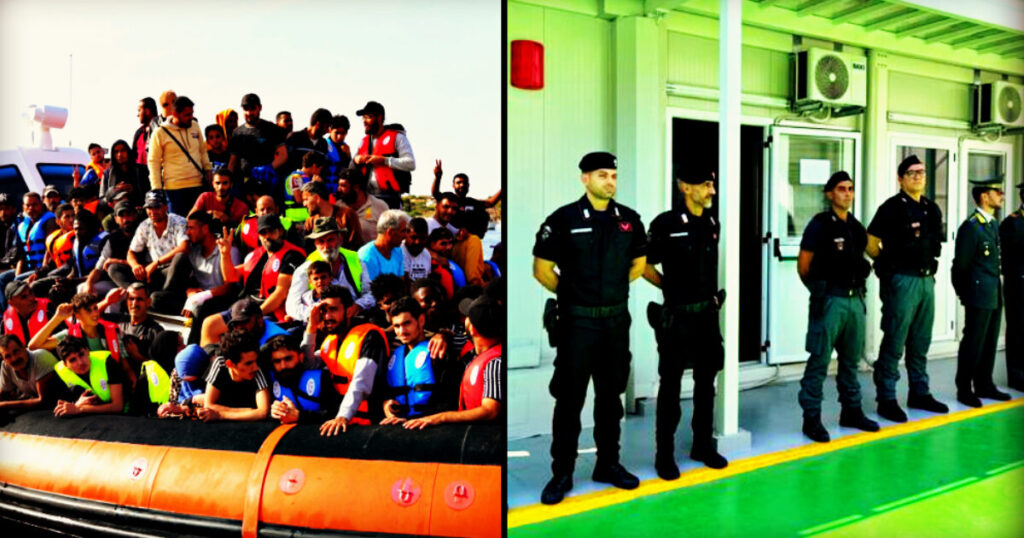As Europe grapples with the challenges posed by unchecked mass migration, a significant divide is emerging within the state apparatus of various member countries, where some officials are actively working against reform efforts. In recent discussions among EU commissioners and heads of state regarding immigration, Italian Prime Minister Giorgia Meloni has received notable acclaim for her innovative approach to handling the crisis. Meloni’s administration has proposed a plan to vet migrants outside the EU, which has garnered wide praise as a promising solution, albeit facing opposition from NGOs advocating for migrant rights and legal challenges from Italian judges. These judicial constraints threatened to halt the implementation of her government’s migration policies, compelling the Italian government to take decisive action to move forward.
In response to legal challenges, Italy’s conservative government has enacted a new decree aimed at addressing the judicial constraints blocking their immigration policy. This decree introduces changes to the list of countries deemed ‘safe’ for repatriation, allowing for expedited processing of asylum applications. Specifically, the number of countries classified as ‘safe’ has been reduced from 22 to 19, with the removal of Cameroon, Colombia, and Nigeria from the list. This change aligns with a ruling from Rome judges who prevented the deportation of migrants from countries like Bangladesh and Egypt, arguing these nations lacked safety for the individuals concerned. The implication of this decree is significant, as it paves the way for a more streamlined approach to handling cases of rejected asylum seekers.
The recent judicial ruling that prompted Italy’s new decree also had broader implications for immigration policies and international agreements. The judgment by Italian courts was influenced by a European Court of Justice ruling, which stipulates that a country can only be classified as ‘safe’ for the purpose of repatriating migrants if the entire nation is deemed secure. This development poses a challenge to Italy’s five-year agreement with Albania, which entails the hosting of up to 3,000 migrants monthly from the Italian coast guard’s rescue operations at sea. These migrants are to be evaluated for asylum eligibility or returned to their countries. Italy’s struggle with these legal challenges exemplifies the difficulties of balancing national policies with European judicial standards.
Though Prime Minister Meloni has portrayed this initiative as a pioneering model for managing illegal migration, the response from NGOs and advocacy groups has been critical. These organizations view the Italy-Albania agreement as a potential violation of international law and a dangerous precedent that undermines migrants’ rights. They argue that the agreement may inadvertently facilitate the neglect of vulnerable individuals seeking refuge, posing ethical concerns around the treatment and processing of these asylum seekers. This pushback raises crucial questions about the balance between national sovereignty in immigration policy and adherence to international human rights norms.
Despite the legislative changes and efforts to devise a functioning solution to mass migration, uncertainty lingers over the actual impact of the new decree. Italian authorities remain confident that it aligns with existing European judicial directives and contributes to an evolving EU regulation slated for implementation by 2026. However, skeptics contend that the decree may not fully address the underlying legal issues raised by the courts, and its effectiveness in overcoming judicial hurdles remains to be seen. The situation presents a complex interplay of domestic policy-making, individual rights, and international obligations, reflecting the broader tensions within European migration discourse.
As right-wing parties gain traction among voters across Europe, there is an emerging consensus among EU leaders about the urgent need for revising existing migration policies and strengthening border protections. This shift indicates a growing recognition of the failures of current approaches and suggests a pivotal moment in the way European nations will address migration challenges going forward. The outcome of these developments will likely shape not only Italy’s immigration framework but also influence broader EU policies, reflecting a critical juncture in the continent’s approach to managing migration and asylum in the coming years.

